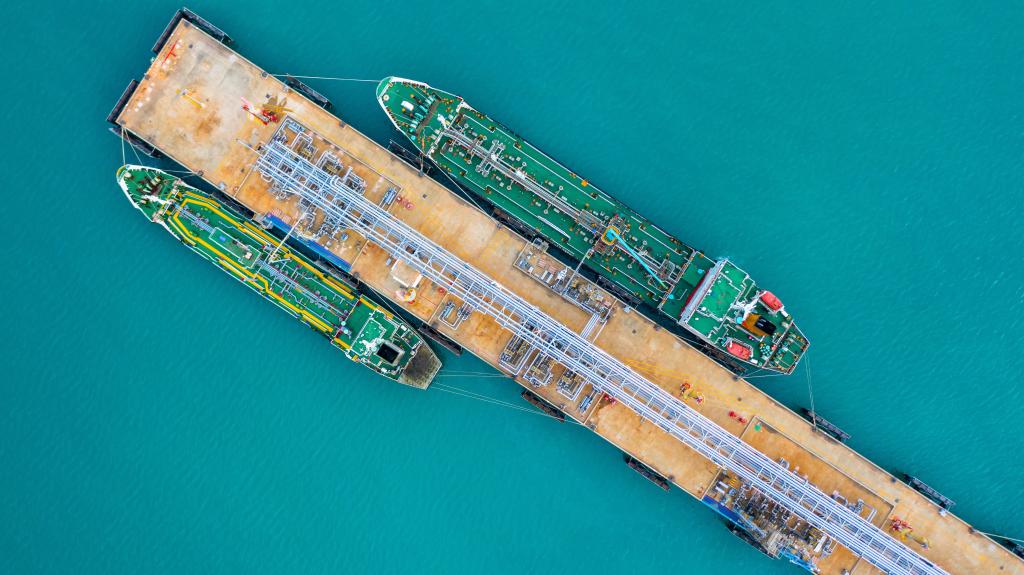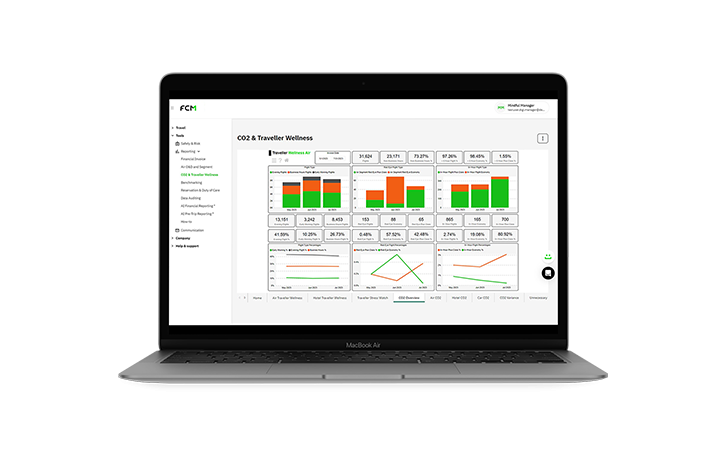How to keep oil and gas travel on track
INSIGHTS
How to keep oil and gas travel on track
In the global oil and gas sector, the ability to move people efficiently has always been mission critical. Unlike conventional business travel, the routes, risks and requirements of energy-sector travel demand a specialist approach - one rooted in operational experience and an understanding of what is at stake.
It’s about more than booking flights; it’s about enabling continuity in environments where timing, compliance and safety are non-negotiable.
Partners that support critical operations
Travel in the oil and gas industry is complex. Rotating crews on and off platforms, redeploying engineers to remote drilling sites or flying seismic teams into multiple countries for field surveys often requires a specific set of skills. It’s a combination of aviation navigation, visa coordination, local ground arrangements and ongoing risk assessment.
It is not uncommon for project timelines to shift suddenly, with new destinations added at short notice or entire groups needing to be redirected due to weather events, safety protocols or operational delays. In these environments, a missed connection or incomplete documentation is more than an inconvenience - it can cost millions in downtime and disrupt international supply chains.
“Travel is not a secondary service in this industry,” says Ciaran Kelly, managing director Middle East at FCM Travel. "It is embedded into operations and takes precise coordination and sector-specific knowledge to do it well. At FCM, we take a hands-on approach, working with clients to ensure their people are where they need to be, when they need to be there."
Expertise where it matters
What sets a specialist travel partner apart in the energy space is not just access to flight inventory or booking platforms. It is about knowing, for example, how to manage travel to Iraq or Nigeria while handling local security clearances and complying with various regional entry restrictions. It is about being equipped to secure rapid approvals across multiple stakeholders, marshal resources in low-infrastructure locations and keep travellers safe through every leg of the journey.
It's important to have a travel partner like FCM to support your operations in regions marked by volatility, severe weather and limited mobility infrastructure. From arranging charters into offshore logistics hubs to liaising with authorities for emergency documentation, it’s handy to have local contacts for those short-notice changes.
A round-the-clock support model is also a defining factor. When the risks are high and time zones cross, having access to real humans with regional context and emergency response capability is essential.

A structured approach to safety and support
In recent years, the importance of travel risk management has only escalated. Whether due to conflict, cyber security concerns, political unrest or health crises, energy companies face growing scrutiny around their duty of care responsibilities. Once seen purely as logistics, travel is now part of the broader operational risk ecosystem.
Travel risk strategy should be embedded into a corporate travel company’s service offering. All travel should be backed by real-time tracking, communications alerts and in some cases, response and evacuation planning. Real-time dashboards allow companies to know the exact location of their personnel. Alerts can be customised by region, and in the case of a disruption companies can act swiftly to inform and redirect personnel.
At FCM, our strategy also includes detailed pre-trip information for travellers, integrated policy guidance and consistent documentation. This reduces the potential for operational errors in high-pressure environments.
Visibility, value and smarter spend
Travel budgets in the energy industry are unique. With crew rotations, shifting rosters and overlapping bookings, visibility into real-time spend can be difficult to maintain.
Using a corporate travel agent like FCM means you get access to rates that others can’t. Take our energy-specific airfares, tailored for operational flexibility, often including enhanced baggage allowances and more lenient change rules. These are supported by longstanding relationships with suppliers across air, hotel and ground transport categories, giving energy operators access to inventory built around their unique work cycles.
For finance teams, centralised payment models and local currency options reduce risk and simplify reconciliation, particularly in markets with weak credit card infrastructure or high fraud risk. Analytical tools and AI-powered dashboards enable procurement and travel teams to see patterns in behaviour, delays, cancellations and supplier usage - highlighting savings opportunities and aiding long-term budget planning.

Sector-focused technology with a human touch
While technology continues to reshape corporate travel, the oil and gas sector requires platforms and systems that respond to on-the-ground realities. Our own offering uses predictive data, automated approval flows and centralised traveller profiles, but always in support of the bigger picture.
You need the ability to view metrics in real-time. Automated insights flag issues before they become problems and help ensure schedules align with operational needs.
Crucially, you need a corporate travel partner maintains a strong commitment to personalised service. Unlike off-the-shelf corporate booking tools, your business travel solutions should integrate closely with your own operations and goals.
The strategic value of specialist travel
As the oil and gas sector continues to evolve the strategic importance of a dependable travel partner continues to grow. Travel may not always be the first thing that comes to mind in upstream planning or refinery expansions, but without a robust and responsive programme in place, those efforts can grind to a halt.
FCM's longstanding involvement in the energy industry means it understands these realities better than most. Its strength lies not only in what it delivers but in how and where it delivers it, meeting its clients at the point where operations meet people.
“Our goal is always to provide stability in areas where uncertainty is high,” says Ciaran. "We are an operational partner that understands this industry's pace, pressure and complexity. That is where we deliver the most value."